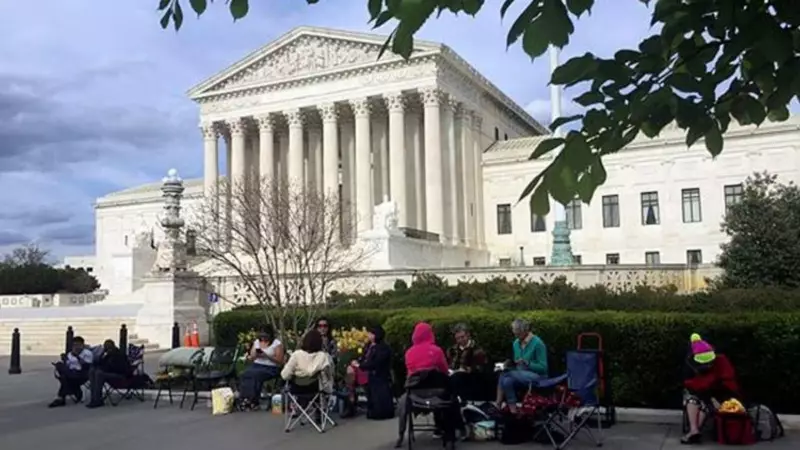
The United States Supreme Court has stepped into a significant legal battle over immigration policy, agreeing to hear the Trump administration's defense of restrictions that could dramatically speed up the processing and rejection of asylum claims. This development marks a crucial moment in the ongoing debate about how America handles those seeking refuge within its borders.
The Core Legal Battle
At the heart of the case lies a regulation established during Donald Trump's presidency. The rule empowers federal authorities to deny asylum applications more quickly without allowing applicants to present their cases in front of an immigration judge. This streamlined process, often referred to as "expedited removal," has been a cornerstone of the administration's efforts to curb what it views as meritless asylum claims.
The legal challenge against this rule was initiated by a coalition of advocacy groups, including the American Civil Liberties Union (ACLU). They successfully argued before lower courts that the regulation violates both US immigration law and international treaty obligations by denying individuals a fair hearing. A federal appeals court had previously blocked the rule from taking full effect, siding with the advocacy groups.
What the Supreme Court Will Decide
The Supreme Court is not immediately ruling on the regulation's ultimate legality. Instead, the justices have agreed to consider a more procedural, yet vital, question: whether the groups that sued the government even had the legal standing, or right, to file the lawsuit in the first place.
The Trump administration's legal team contends that these organizations lack a sufficiently direct injury to challenge the rule. A decision in the government's favor on this technical point would effectively nullify the lower courts' rulings and allow the asylum restrictions to be implemented while the broader legal fight over the policy's merits continues—a process that could take years.
This legal maneuver highlights a common strategy in complex policy disputes: winning on a procedural technicality can be as effective as winning on the core argument.
Broader Implications for US Immigration
The outcome of this case carries profound implications for the future of US asylum policy and the thousands of individuals who seek protection each year.
If the Supreme Court sides with the Trump administration, it would grant immigration officials significantly greater power to fast-track the rejection of asylum seekers at the border and in the interior of the country. Proponents of the rule argue this is necessary to prevent abuse of the asylum system and reduce massive backlogs in immigration courts.
However, critics warn that such a system would put vulnerable individuals at grave risk. "This policy was designed to slam the door shut on people fleeing persecution, denying them a fair chance to plead their case," a representative from an immigrant rights group stated. They fear that without proper judicial review, people with legitimate fears of violence or persecution in their home countries could be summarily deported to danger.
The Supreme Court's decision to hear the case ensures that the contentious debate over asylum will remain at the forefront of American political and legal discourse, with the nation's highest court now set to play a pivotal role in determining its direction.





